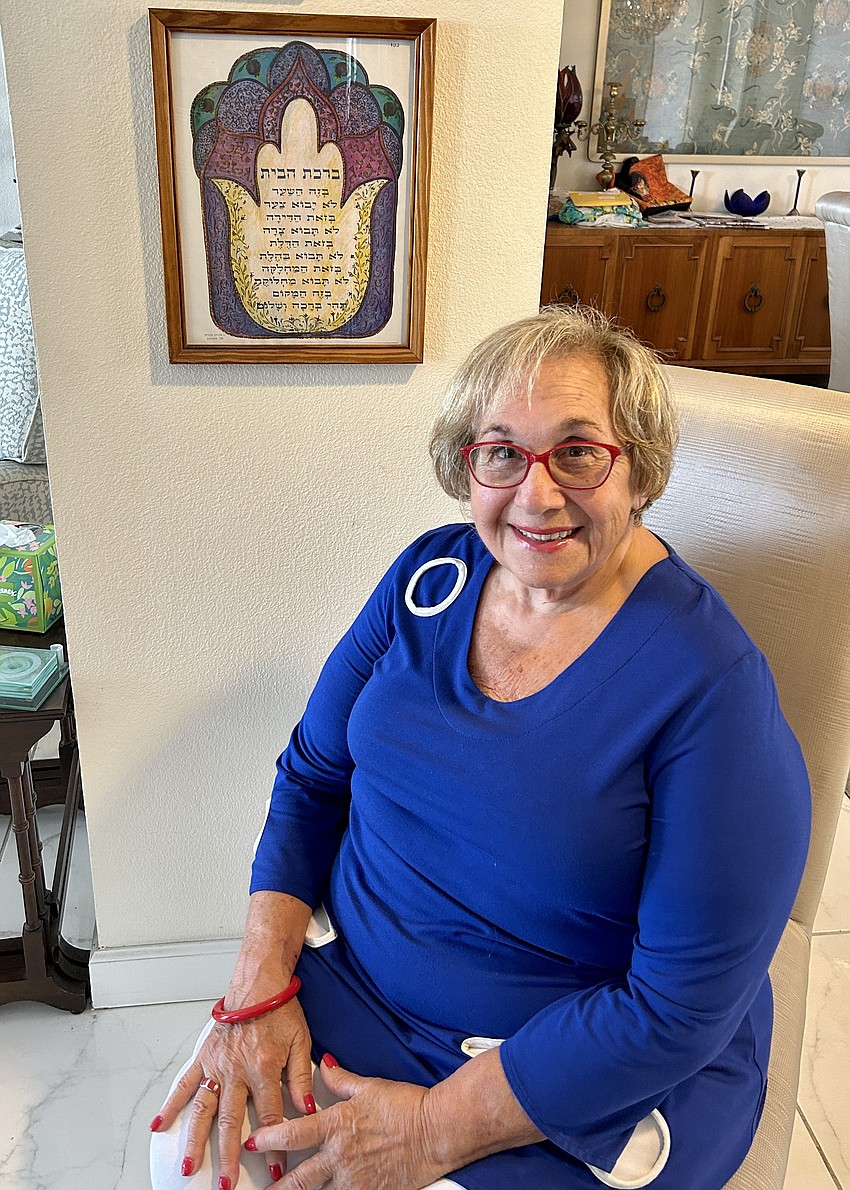- April 30, 2025
-
-
Loading

Loading
“Bad Jews," Sarasota Jewish Theatre's latest production, creates edgy comedy in the minefield of authentic Jewish identity.
Joshua Harmon’s “Bad Jews” begins after the death of “Poppy,” the family patriarch. Three cousins arrive in a Manhattan studio apartment before their grandfather’s funeral. A farcical struggle for Poppy’s chai necklace ensues between the three. To the cousins, it’s far more than a piece of jewelry. It’s a potent symbol of family heritage.

Chai is a letter in the Hebrew alphabet. It symbolizes “life.” Their grandfather was a Holocaust survivor. He risked his life to save that necklace. “Poppy” hid it under his tongue during his time in a Nazi concentration camp. Who’s entitled to it now?
Daphna sees it as a sacred link to her Jewish identity; Liam wants to give it to his non-Jewish girlfriend as a romantic gesture. They both stake a claim. Jonah stays neutral. Daphna and Liam fiercely argue. Their squabble becomes a proxy war for deeper issues of faith, family and what it means to be “good” Jew.
Director Gus Kaikkonen is right in the thick of that war of words. He notes that the fight is over serious issues. But “Bad Jews” is a seriously funny play. Harmon’s well-drawn personalities explain why.
“Each character has a cri de cœur — a soul-baring moment,” he says. “That’s a gift for actors. They can go deep. But those emotional outbursts are also hilarious because they’re so raw and real.”
According to the director, the combative cousins both claim cultural authenticity. They use that claim as a form of leverage — one that entitles them to the chai necklace and the family history it represents. That said, these millennials are separated by nearly a century from what their grandfather endured.
Kaikkonen notes that the shadow of the concentration camps looms large. But "Bad Jews: isn’t a Holocaust play.
“The cousins are all in their 20s,” he says. “Their late grandfather survived the Holocaust — and that impacts them. But they didn’t live through that trauma directly. ‘Bad Jews’ is about what it means to be Jewish now. It reflects ongoing conversations in Jewish communities — and honestly, any community wrestling with tradition and change.”
While the play asks big questions, Kaikkonen stresses that it’s not an “issues” play. “I’d describe it as a family play,” he says. “Any politics are family politics.”
The director adds that the family is very specific, but their conflicts are universal. “On the surface, the cousins are fighting about a necklace,” he says. “But it’s more of an excuse than a reason. You could plug in politics, science, religion — anything people fight about over dinner. That’s what makes these characters so relatable.”
The actors must express their characters’ emotional depths. At the same time, they’ve got to get the audience laughing.
Kaikkonen says they’re up to the challenge. “Our cast is really good,” he says. “They’re already deep in rehearsals. What’s especially lovely is that the actors genuinely like each other — and, more importantly, trust each other. That’s essential — because their characters definitely don’t.”
The conflict boils inside Steve Patmagrian’s sleek set. “It’s a high-end studio apartment, but there’s not much space," the director says. “It’s a lot like ‘No Exit.’ Everyone’s bottled up inside with each other. It’s a pressure cooker environment with no escape. We’ve all been there.”
He adds that you don’t have to be Jewish to relate to this incendiary squabble. The play’s family feud resonates across cultures. For Kaikkonen, directing “Bad Jews” often induces a sense of déjà vu. “I definitely recognize the dynamics from my own family,” he laughs. “That part hits close to home for me. Our audience will feel the same way.”
Kaikkonen notes that the play’s title makes some folks flinch. Even the London transit system refused to run posters for “Bad Jews.” But this production is already sold out. Why?
“There’s only one explanation,” he says. “Sarasota Jewish Theatre’s audience is fearless.”
But not every theatergoer is. Why call your play “Bad Jews” in the first place?
“The playwright knew what he was doing,” Kaikkonen explains. “The title’s provocative by design. It grabs attention — which a good title should do. But Harmon’s not calling anyone a ‘Bad Jew.’ He’s examining who gets to define what that means — and how people weaponize that definition inside families. It’s about power dynamics, not name-calling. In the play, the conflict’s rooted in the Jewish experience. But the play’s family power struggle is experienced across every culture.”

Carole Kleinberg is Sarasota Jewish Theatre’s artistic director. “Bad Jews” is one of the most produced plays in the country. Why did it take so long to hit the SJT stage?
The answer is simple. “I didn’t like the title I’ve passed on the opportunity to produce it in the past.”
What changed Kleinberg’s mind?
“I realized that the playwright is a serious playwright who tackles tough issues. 'A Prayer for the French Republic' is making quite a stir," she says. "When I read the script for ‘Bad Jews,’ I realized he’s really asking what it means to be a good Jew. It’s smart writing on so many levels.”
Once “Bad Jews” was in the lineup, it quickly sold out. Every play this season has also packed the house. Last season was sold out, too. How does she feel about that? I’m just stunned,” she says. “I couldn't be more thrilled.”
What’s the secret of SJT’s success?
“I think our quest for excellence is paying off,” she says. “From acting to directing to stagecraft to the script, it’s always firstrate. We’re not a community theater, we’re a professional theater. That’s the standard we set, and audiences respond."